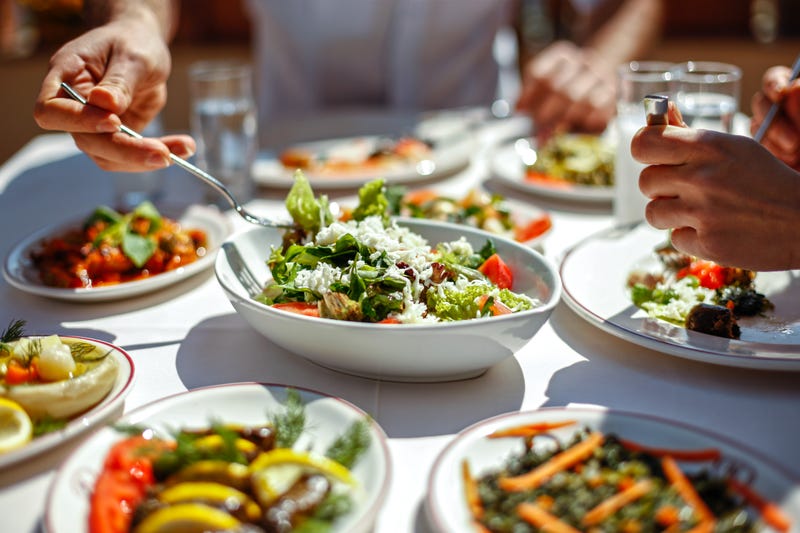
89% of Americans include meat in their diets. But between vegetarians and meat eaters, there’s a new middle ground — more people are opting to eat vegetarian at home, but still eat meat socially. Bon Appetit writer and editor Ali Francis told KMOX all about the “social omnivore” phenomenon.
“Some of the reasons in favor of this sort of flexible way of eating is that folks can keep some of the meals and the moments they love, while also acting in a way that they feel is ethically aligned with their values,” Francis said. Those values include things like animal welfare, the environment — or even health reasons.
Francis herself ascribes to the social omnivore lifestyle, though she says she leans more vegetarian generally.
“There are still meals and moments where, you know, it breaks my heart to tell my Polish grandma I'm not going to eat the pierogi she spent all day making,” she said. “I think it's sort of those are the main reasons for myself that I like to still engage in some meat eating, is culturally it's important. It's a big part of my family. My parents are cattle farmers.”
Francis said she thinks a lot of social omnivores have the same dilemma — they want to eat in a way that supports their beliefs, but they come from families or cultures where meat is important in social situations. “It's a big, big part of our culture, and it can be lonely to go against that grain,” she said.
Hear more from Bon Appetit’s Ali Francis on the “social omnivore” lifestyle:
Copyright 2022 KMOX (Audacy). All Rights Reserved.
Follow KMOX | Facebook | Twitter | Instagram
Listen on the free Audacy app.
Tell your smart speaker to play K M O X.
